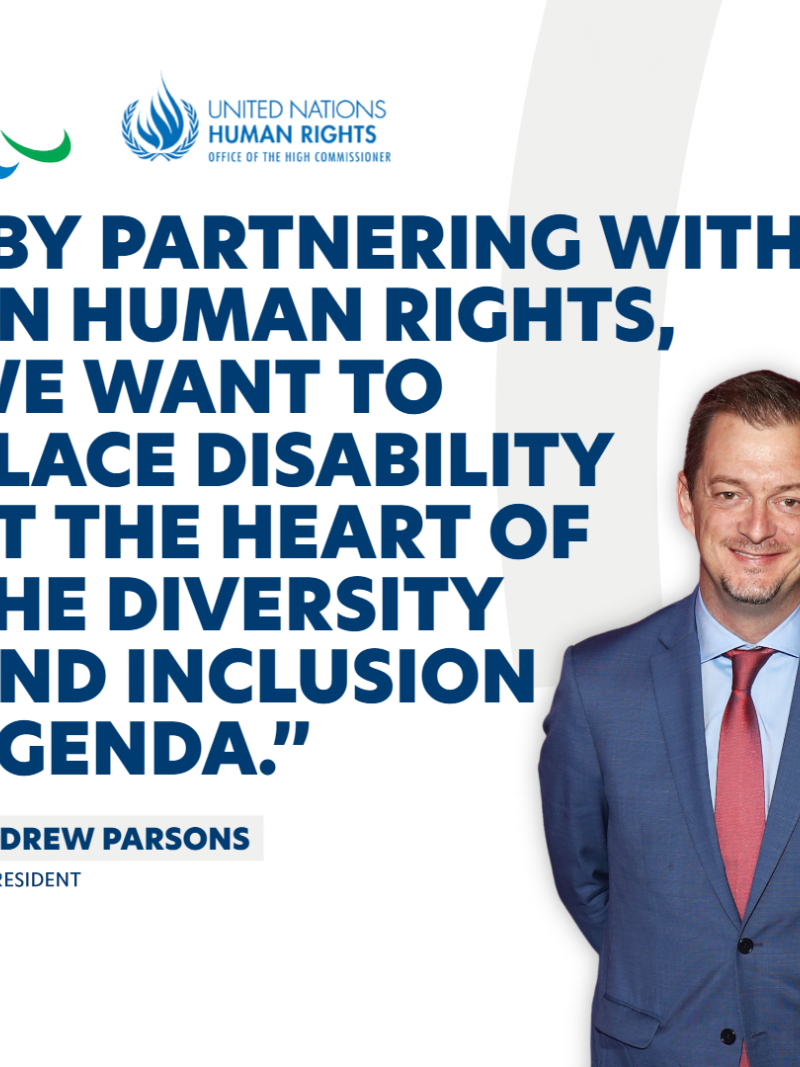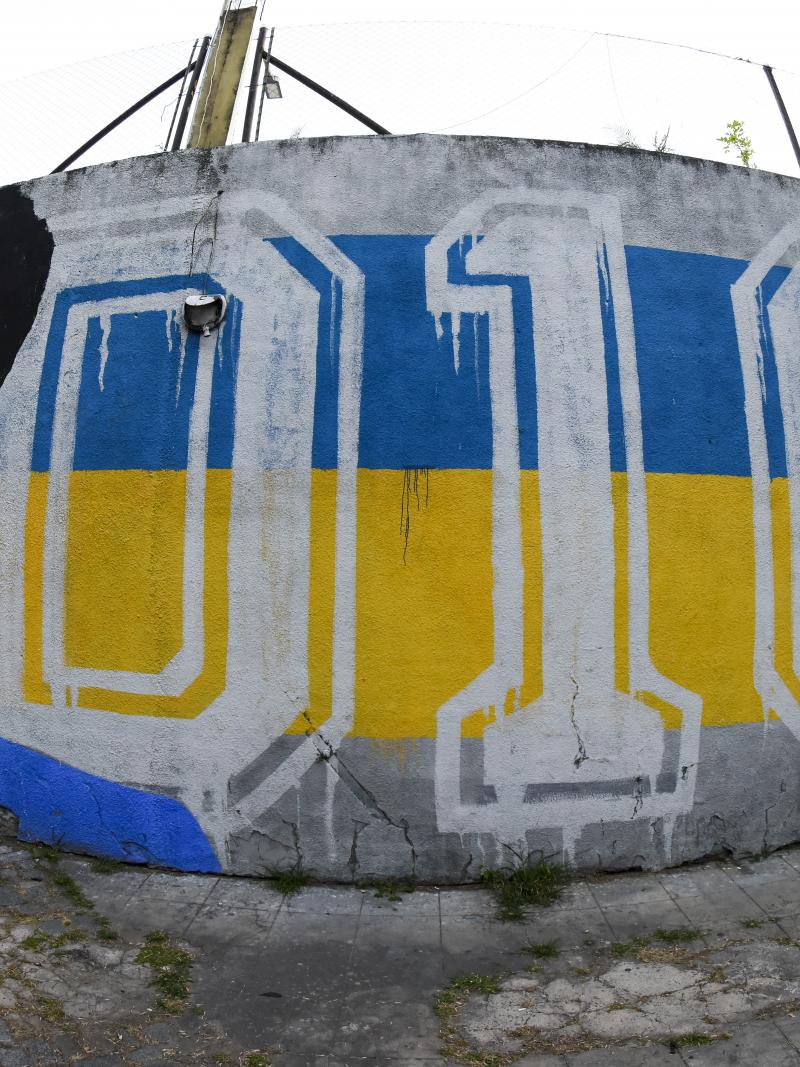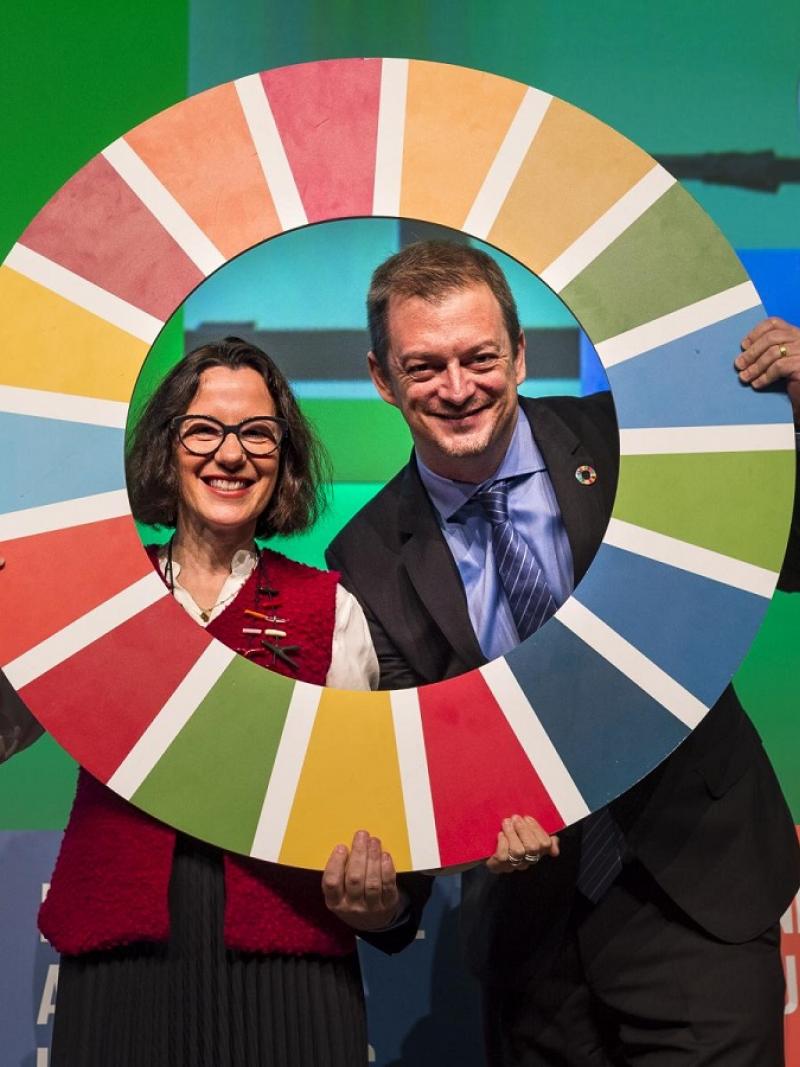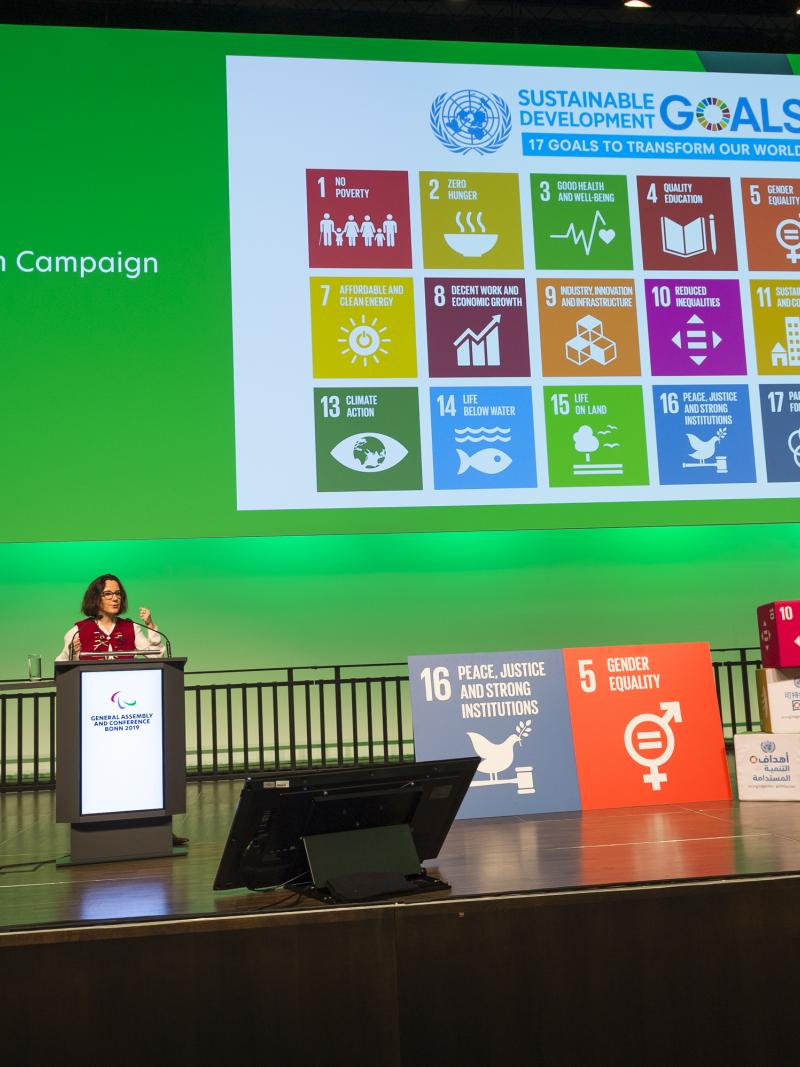Q&A with Facundo Chavez: Para sport as a driver for human rights
IPC Governing Board member Juan Pablo Salazar interviews UN's human rights and disability officer 03 Mar 2021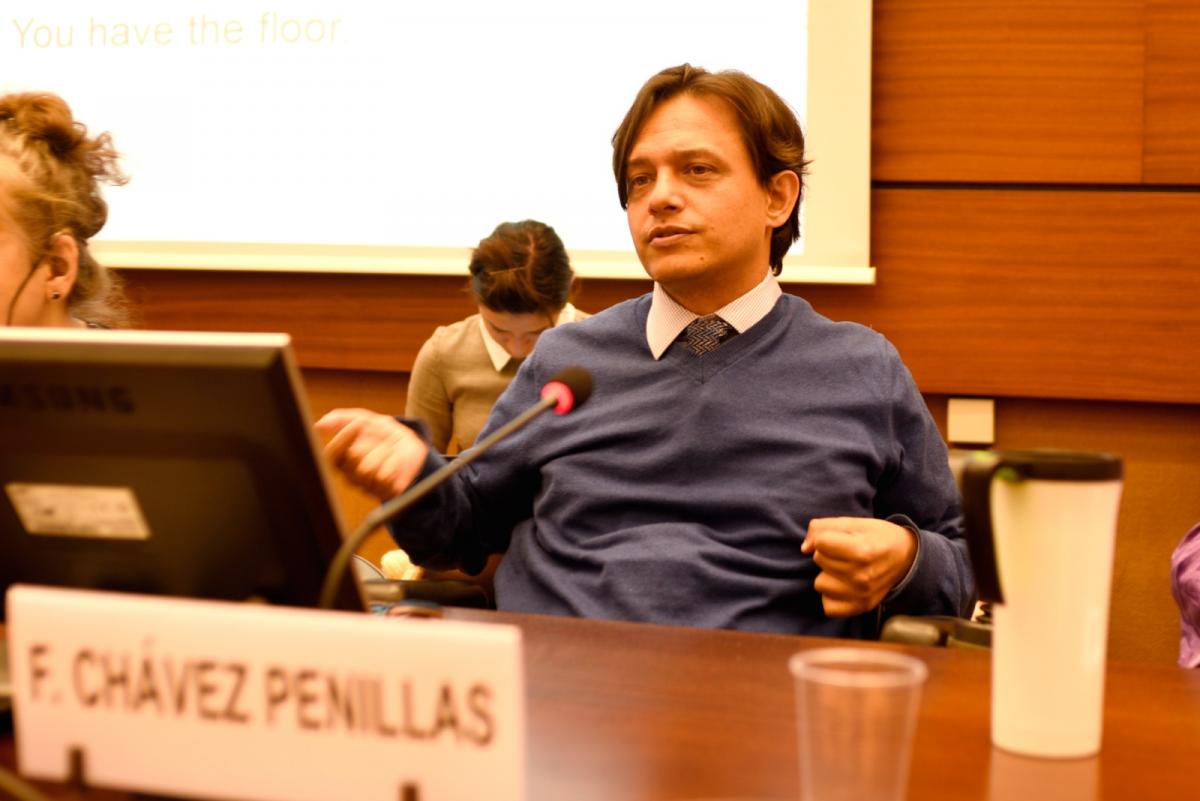
In recent weeks and months, you will have seen that the IPC is engaging with different UN agencies. The purpose of these partnerships is advancing our own human rights agenda. But why does the IPC even have a human rights agenda to begin with? Aren’t we a high performance sports organisation that should only focus on athletic excellence?
Not really. Of course, we are a sports focused organisation and that’s not changing anytime soon. But it is also true that we are a huge network of organisations of persons with disabilities that wake up every day of their lives to face some type of barrier to fully enjoy their rights. We all know the transformative power of sports because we have lived it in our own skins. So, it makes sense to use our platform to promote the changes enshrined in the UN Convention on the Rights of Persons with Disabilities (CRPD).
It is in this spirit that IPC Governing Board member Juan Pablo Salazar spoke with Facundo Chávez, the human rights and disability adviser of the UN Human Rights Office.
Facundo, what is the Human Rights Council and what does it have to do with sports?
The Human Rights Council is an intergovernmental body within the United Nations which works to promote human rights. Every year in March, the Human Rights Council holds an interactive debate on the rights of persons with disabilities and each year the debate is focused on a specific theme. This year the theme of the debate is on the participation of persons with disabilities in sport and physical activity under Article 30 of the CRPD. In preparation for this debate, the UN Human Rights Office (OHCHR) drafted a report and sought input from a variety of stakeholder including governments, UN agencies and civil society including sports organisations and organisations of persons with disabilities.
What led to the Council’s decision to dedicate the report and annual interactive debate on the rights of persons with disabilities to physical activity and sport this year?
Over the years, there has been growing attention to the role of sports in promoting social inclusion and human rights for all members of society, including persons with disabilities. The importance of ensuring the participation of persons with disabilities in sport, cultural life, recreation and leisure was recognised in the CRPD, which is a human rights treaty adopted in 2006. Article 30(5) of the Convention explicitly recognises the right of persons with disabilities to participate in physical activity and sports on an equal basis with others and calls on States to enable their participation.
Given the increased attention to sports and human rights and the forthcoming Tokyo 2020 Games, the Council made the decision to dedicate the 2021 annual interactive debate on the rights of persons with disabilities to the theme of sport (see Human Rights Council Resolution 43/23). The UN Human Rights Office was mandated to prepare a report on the participation of persons with disabilities in sport and physical activity. In developing this report, we sought input from States, UN agencies and civil society including sports organisations and organisations of persons with disabilities. The report explores the barriers which persons with disabilities face to participate in sport and physical activity and provides an overview of the obligation under article 30(5) of the CRPD to participate in recreation, leisure and sports on an equal basis with others, including in mainstream and disability-specific sporting activities, recreational, leisure and tourism venues, and in education. It contains guidance on a human rights-based approach to develop inclusive and disability-specific physical activity and sports and shares good practices and recommendations to assist States in implementing their obligations under international human rights law. The report and the submissions sent in to inform the report are available on the OHCHR website.
How can sport and physical activity promote the rights of persons with disabilities?
Sport is a powerful means to enable individual participation and empowerment and to reinforce community inclusion and cohesion. However, persons with disabilities continue to face barriers in participating on an equal basis with others and as a result, they are more likely to be physically inactive and have poorer health outcomes compared to the rest of the population.
The CRPD calls for measures to promote the participation of persons with disabilities in sport and physical activity – including by ensuring accessible infrastructure and equipment, making available adapted equipment and assistive devices, as well as ensuring funding structures and allocation of resources for persons with disabilities to take part in mainstream and disability-specific sports - not only as athletes and practitioners but also as spectators, consumers and organisers of activities and events. Inclusive education can also be a means to promote inclusive physical education, sports and play for all students.
Ensuring the participation of persons with disabilities in sport and physical activity, mutually reinforces other rights and their broader participation and inclusion in society, for example, the right to inclusive education, work and employment, the highest attainable standard of health and non-discrimination. Specific efforts should also be made to promote the gender equality by enhancing the participation of women and girls with disabilities who are less represented than their male peers in sport and physical activity.
Who takes part in Human Rights Council interactive debate and what are the expected outcomes?
Every year the interactive debate on the rights of persons with disabilities is opened by the High Commissioner for Human Rights, Michelle Bachelet, and is followed by a panel made up of individuals with expertise and experience in the subject matter. This year the panel consists of:
• Gerard Quinn, the UN Special Rapporteur on the rights of persons with disabilities,
• Rita van Driel, a member of the Governing Body of the International Paralympic Committee,
• Jaime Cruz Juscamaita, a self-advocate, Special Olympics athlete from Peru and representative of Inclusion International, and
• Bodour Almeer, Sustainability Director of the Supreme Committee for Delivery and Legacya of the FIFA World Cup Qatar 2022.
Once the panellists deliver their statements, the floor will be given to States and other accredited organisations (UN agencies, National Human Rights Institutions, civil society organisations) to make comments or ask questions relating to the report and panellists’ statements. The panellists will have the opportunity to respond to those comments and questions. The debate can be followed live on UN TV and will also be recorded and available for viewing after the live event.
The debate seeks to bring greater understanding on the importance of physical activity and sports for persons with disabilities as a means to strengthen their participation and inclusion in society, with positive outcomes across health, education, employment and other areas of life. The debate aims to highlight implementation measures and identify good practices to promote the participation of persons with disabilities in physical activities and sports, including through international, regional and national efforts to ensure equal access and funding for inclusive and disability-specific sports, accessible infrastructure, assistive technologies and awareness-raising.
An informal summary of the interactive debate will be prepared by the Office of the United Nations High Commissioner for Human Rights (OHCHR) and posted on the OHCHR website. And in 2022 the Human Rights Council will be adopting a resolution on the rights of persons with disabilities which will include recommendations for States and other stakeholders on how to enable participation of persons with disabilities in sport and physical activity in accordance with Article 30 of the CRPD.
How can the sports community and the IPC continue to engage in promoting the rights of persons with disabilities?
Everyone has a role to play in embracing diversity and ensuring the inclusion of persons with disabilities. The sports community, including mainstream and disability-specific sports federations at the local, regional and global levels, have significant potential to lead by example by taking proactive measures to enable the participation of persons with disabilities in their activities- from ensuring their environments and equipment are accessible, to reviewing and adopting their policies for rights-based objectives inclusive of persons with disabilities, such as engaging in awareness-raising to eliminate negative stereotypes and foster respect for the rights of persons.
The IPC has a pivotal role to play in promoting the rights of persons with disabilities and in combating prejudice and changing attitudes. In this vein, we are pleased that the IPC and the UN Human Rights Office has entered into a partnership to celebrate inclusion, participation and human diversity in the lead up to the Tokyo Games.
We call on the IPC and others in the sports community to disseminate information about the upcoming debate, as well as to follow it live and to engage and exchange on social media.
The upcoming debate will take place on Friday 5 March at 16:00-18:00 (CET) and can be followed live on UN TV: webtv.un.org





